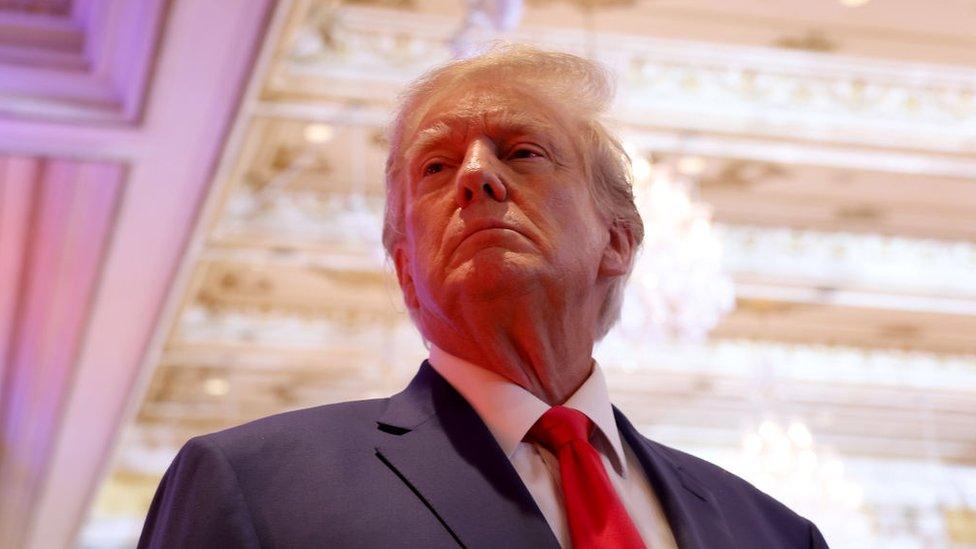Ways Trump's victory might affect the UK
- Published
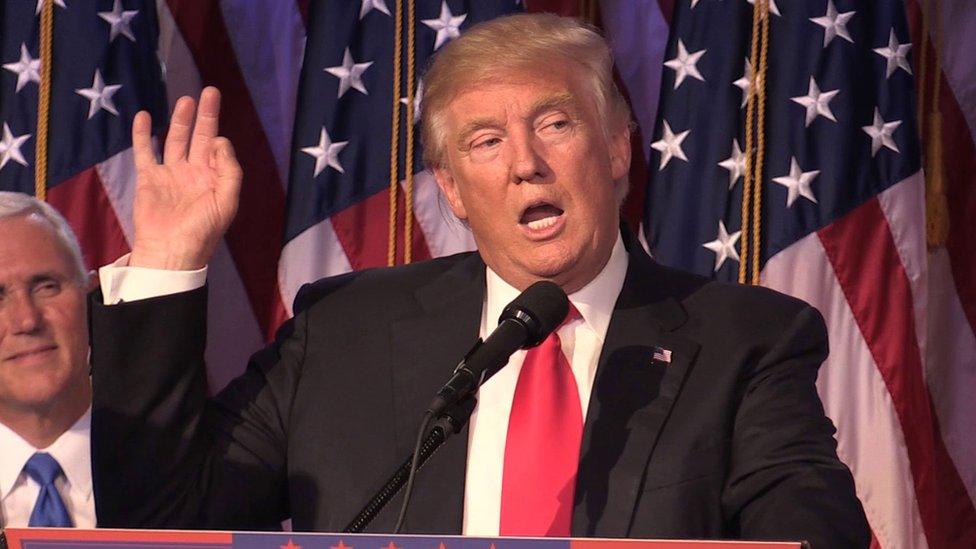
Will Donald Trump be OK for the UK?
He's only gone and done it. Donald Trump has won the US election. So what might his presidency mean for the UK?

Surprise and the markets
Part of what has made Donald Trump attractive to voters - a Washington outsider with no political past - is what makes him such an unpredictable factor for the financial world, and its knock-on effects for Britain.
The UK, European and Asian markets initially fell on news of America's seismic election result. Many markets then largely recovered.
But how far the uncertainty and instability plays out, and what effect that has on, say, UK interest rates, depends on how long global markets stay "surprised", says Lucy O'Carroll, chief economist at Aberdeen Asset Management.
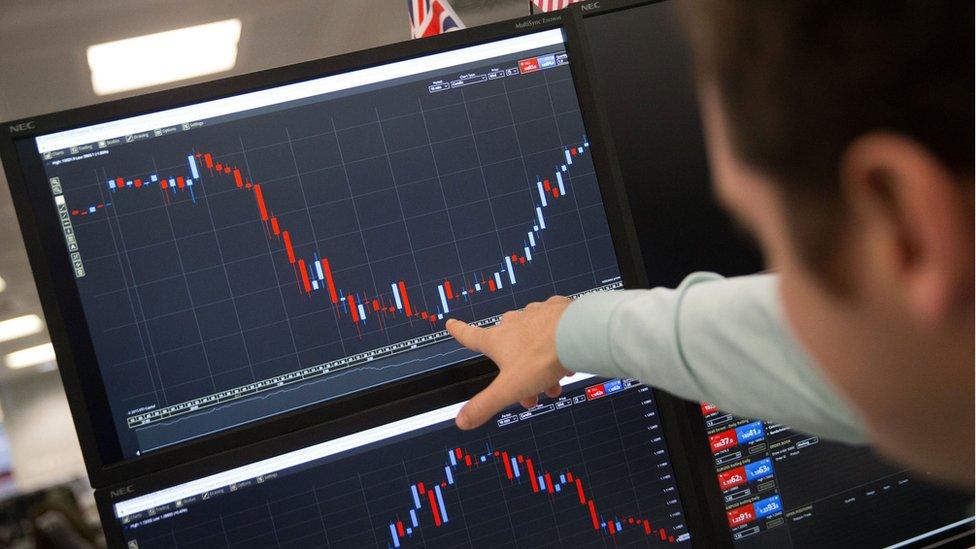
If UK stock markets, business and consumer confidence were to be dragged down for weeks or even months the Bank of England could move back from its current "neutral" position on interest rates, she says, to a "loosening bias" - giving a signal to markets that it expects its next move to be a further small cut in interest rates."
But if markets settle as quickly as they have on Wednesday, the Bank of England may decide to hold rates at their current level.

The pound
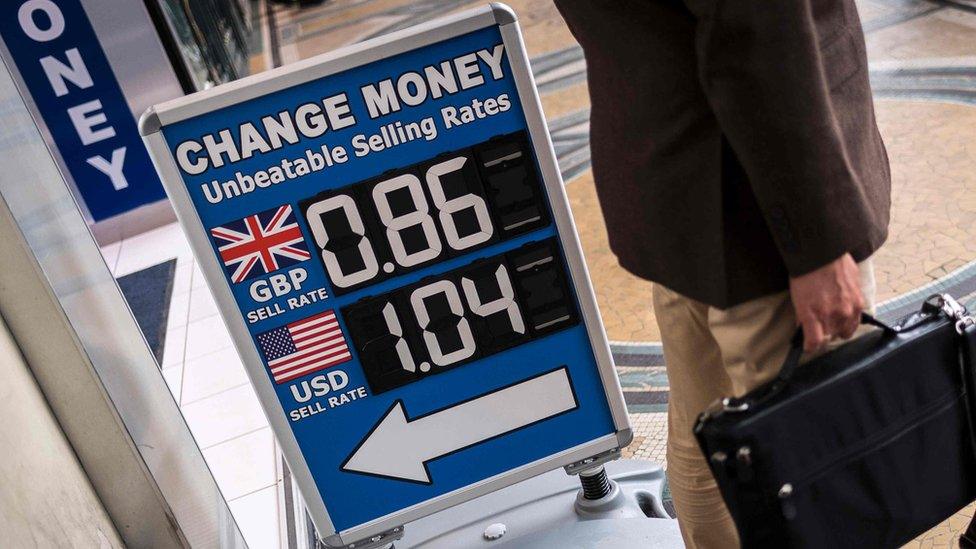
And what of the pound? On Wednesday morning, sterling strengthened against the dollar, rising 0.3% to go back above $1.24. Then it promptly fell back to where it had started the day.
But in the longer term? The euro also strengthened in early trading, up 0.4% higher against the dollar. But the pound is still a long way beneath where it was before the Brexit vote.
"That downward move reflects the fact that markets believe the UK's long-term growth prospects will be weaker following our departure from the EU, and concerns about what our future trade relationships with EU and other economies may be," says Ms O'Carroll.
"These concerns will remain in play, and are not really affected by Mr Trump's victory."
Prospects are still more about "the local shock of Brexit" than what happened across the pond.

Politics and the PM
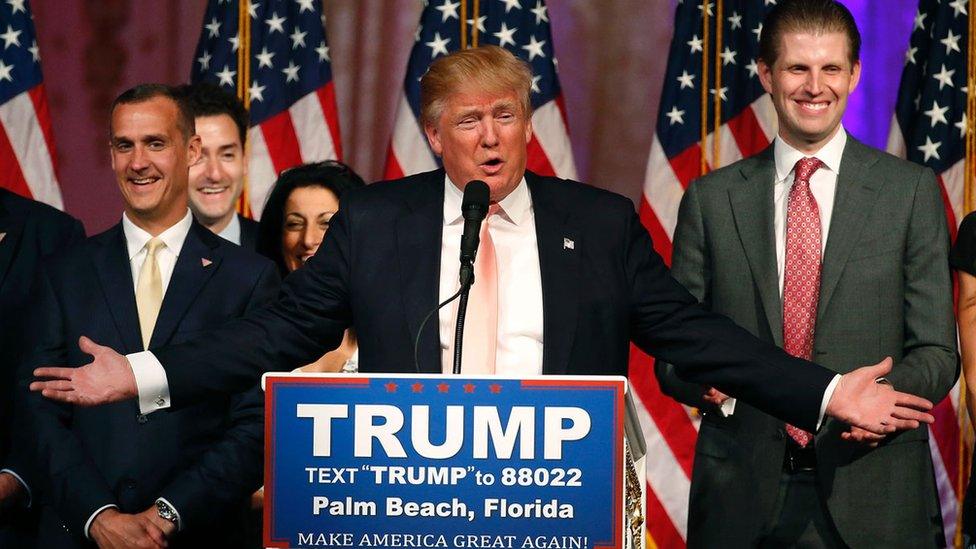
In victory, Donald Trump's speech struck an unfamiliar, conciliatory tone. He set out his vision for America at home and also pledged to "get along with all other nations, willing to get along with us". "We expect to have great, great relationships," he said.
Of course, for him, US interests come first. But he said his country would "deal fairly with everyone". He added: "All people and all other nations. We will seek common ground, not hostility, partnership, not conflict."
UK Prime Minister Theresa May said she was "looking forward to working" with him, in a strong "trade, security and defence" partnership. The American Ambassador to the UK , Matthew Barzun, assured the special relationship, as his boss Barack Obama had put it, stayed "unbreakable and unshakeable".
It's a far cry from the time that Mrs May called the then candidate's comments on Muslims "divisive, unhelpful and wrong".
Or Foreign Secretary Boris Johnson's riposte to comments about London's supposed "radicalisation" that he wouldn't visit New York due to the "real risk of meeting Donald Trump".
He now is "looking forward to working with (Mr Trump) on global stability and prosperity".
Much of Donald Trump's previous dealings in the UK have revolved around his controversial development of a golf course in Aberdeenshire, very much pre-presidency.
He has held no political office, forged no foreign policy path, so the impact on military, intelligence, and other shared interests of his campaign vision of "peace through strength", external is unclear.

Trade and growth
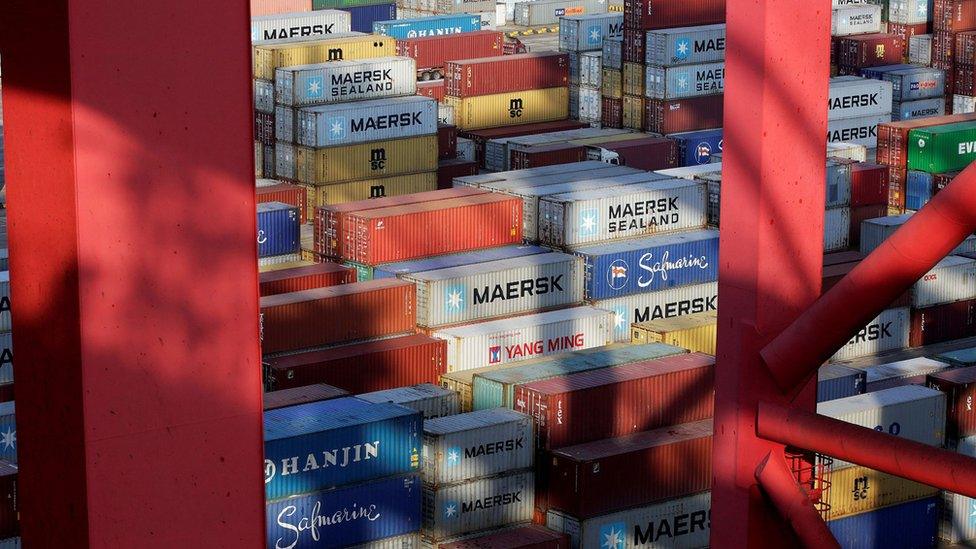
A huge part of that relationship with the UK and the world is based in trade. Pre-EU referendum, President Obama warned the UK would go to the "back of the queue" for a US trade deal if it voted out.
The Trump camp is more positive. Trade adviser Dan DiMicco said he "absolutely" wanted to strike a trade deal with the UK.
Trump himself said it made "no difference" if the UK was in the EU or not.
His website, however, doesn't mention the UK in its section on trade, external, instead focusing on the problems he sees in the US relationship with China.
China and the US have driven global growth during the past quarter of a century.
But the president-elect feels relations between the two are unfairly skewed towards China.
He wants it labelled a "currency manipulator". And has threatened to tear up global trade agreements, like the North American Free Trade Agreement (Nafta) with the aim of securing a better deal for American workers.
That would be a move "many believe will be bad for global economic growth", says the BBC's economics editor Kamal Ahmed, with knock-on effects for the UK economy.
"We are also in the middle of the biggest, untested monetary experiment ever attempted by central banks following the financial crisis - $12.3 trillion of quantitative easing or money printing to stop the world lurching into deep recession.
"Investors and markets are no longer sure which way is up."
One of the first clues on how Donald Trump may operate in office, compared with what he said as a candidate could come in how he deals with US Federal Reserve chair Janet Yellen.
Her term is due to come to an end in 2018 - she is seen by many as a positive influence for stability.
But the president-elect has accused the independent central bank of keeping interest rates low at Democrat President Obama's behest. And what he does next may set some of the tone for his financial policy.

Travel and holidays
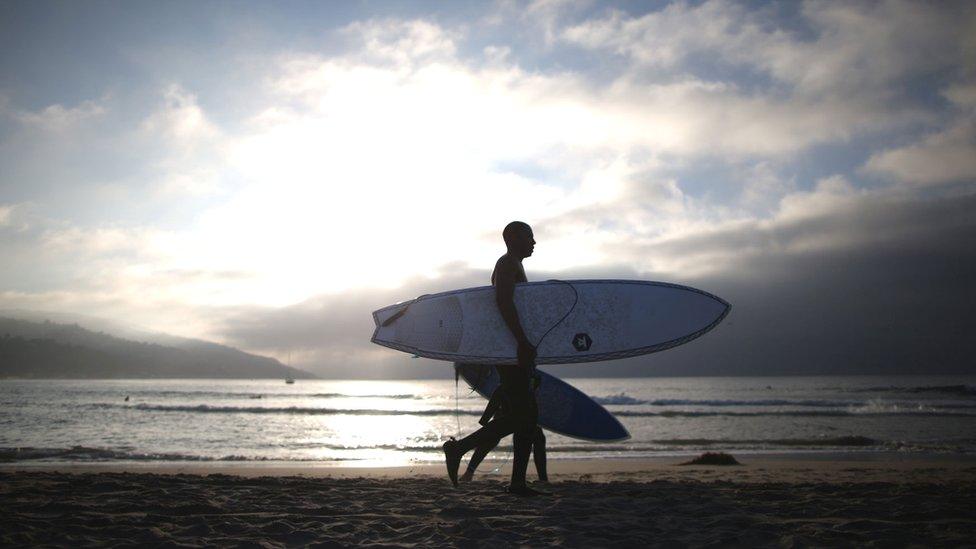
There has not yet been a plunge in the dollar that would make the US suddenly more attractive for tourists.
But on the less tangible side, does a trip to the US feel less or more appealing?
"Emotionally, the effects are less easy to predict. The welcoming people, Florida theme parks, New York streets, National Park wildernesses and California sunshine will remain the same," travel writer Simon Calder says,
"But during the campaign Donald Trump invoked fear and hate, and America may feel more divided than it has done since the Vietnam War, with abundant mutual suspicion and distrust.
"Longer term, reaching the US could get more difficult, with your faith possibly determining how easy it is to get through passport control," he says, referring to Donald Trump's December 2015 call for "a complete and total shutdown of Muslims entering the United States".
"Politically that may be impossible to impose, in which case there may well be much stricter controls on every foreign visitor - which will appal states such as Florida that are dependent on tourism."
- Published9 November 2016
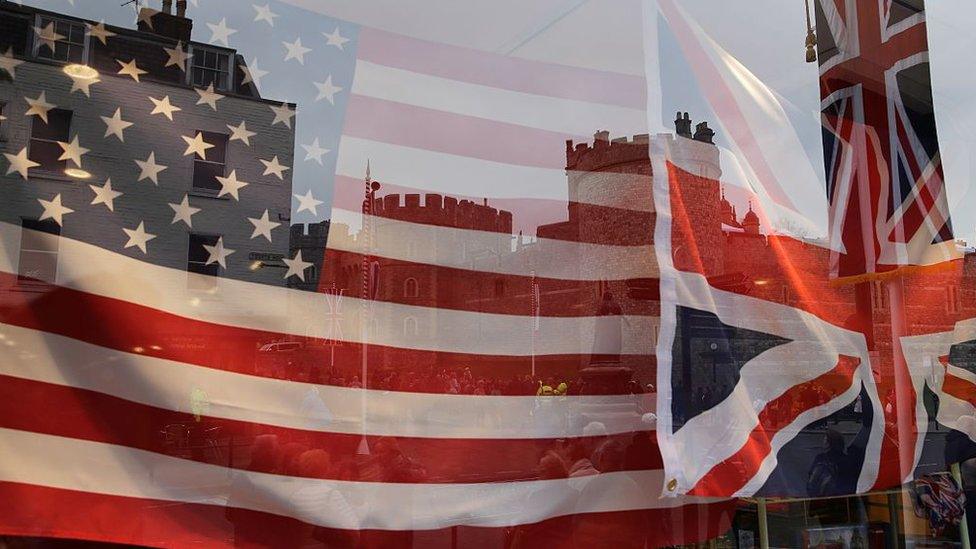
- Published9 November 2016
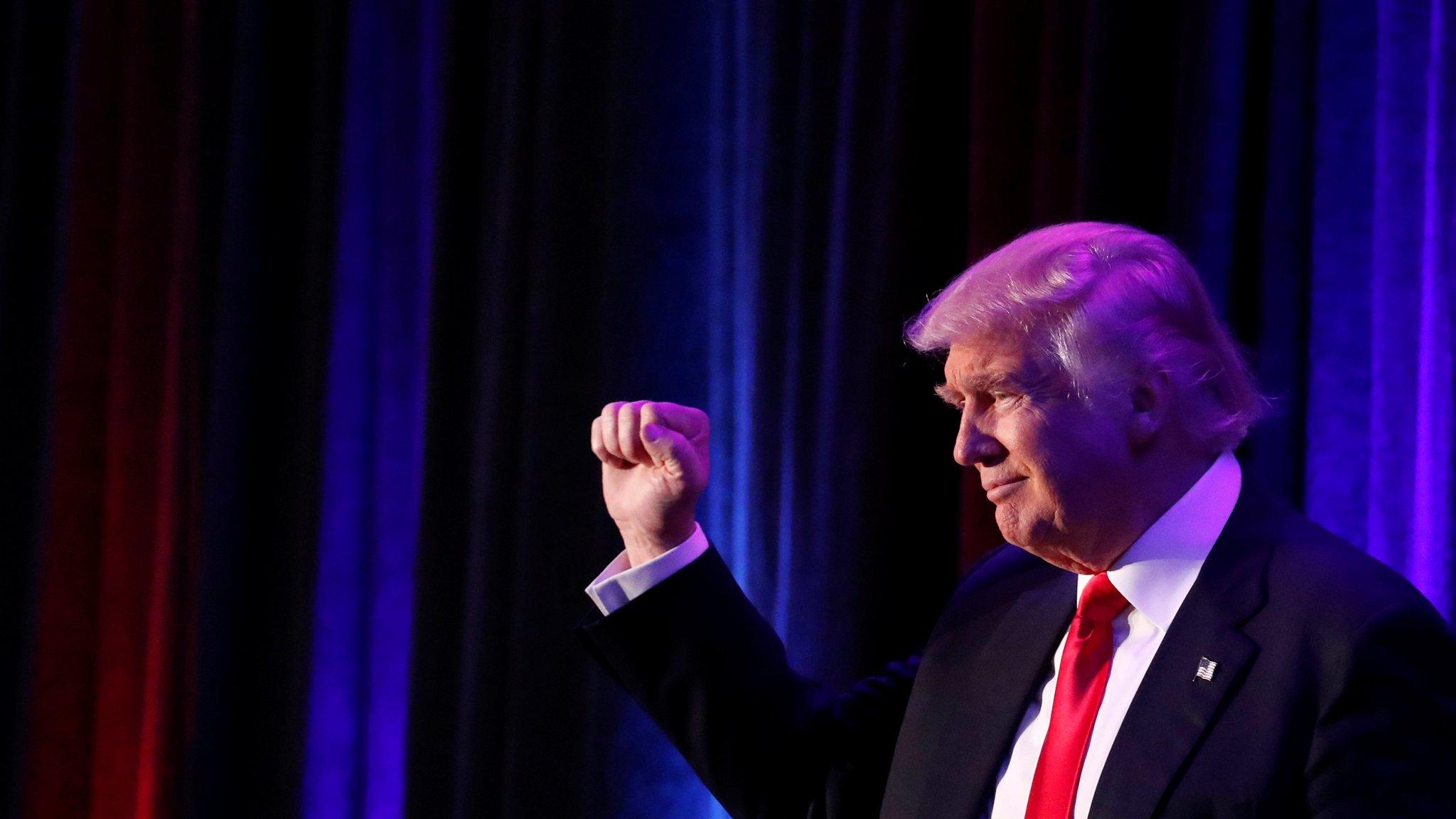
- Published9 November 2016
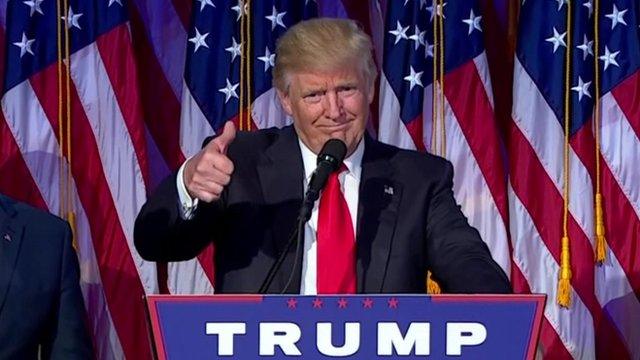
- Published9 November 2016
- Published9 November 2016
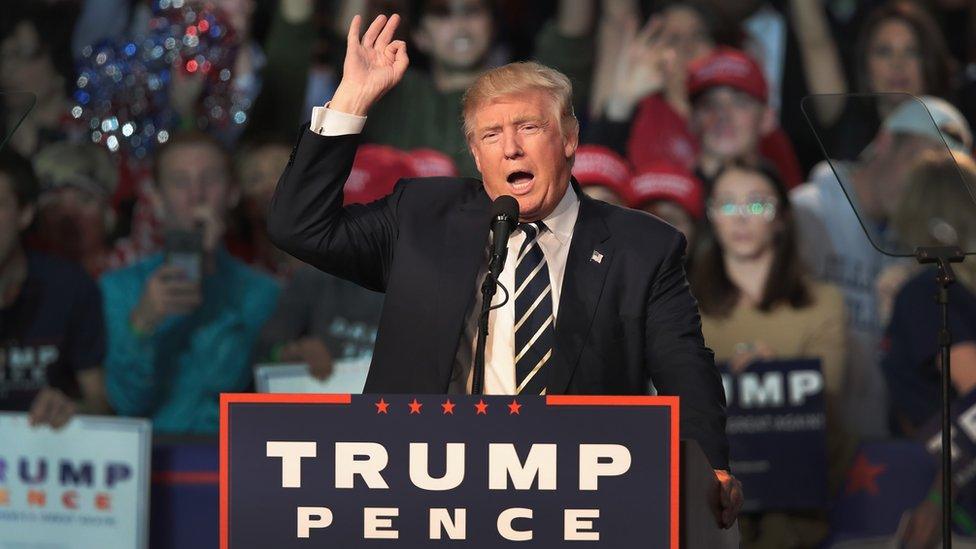
- Published10 November 2016
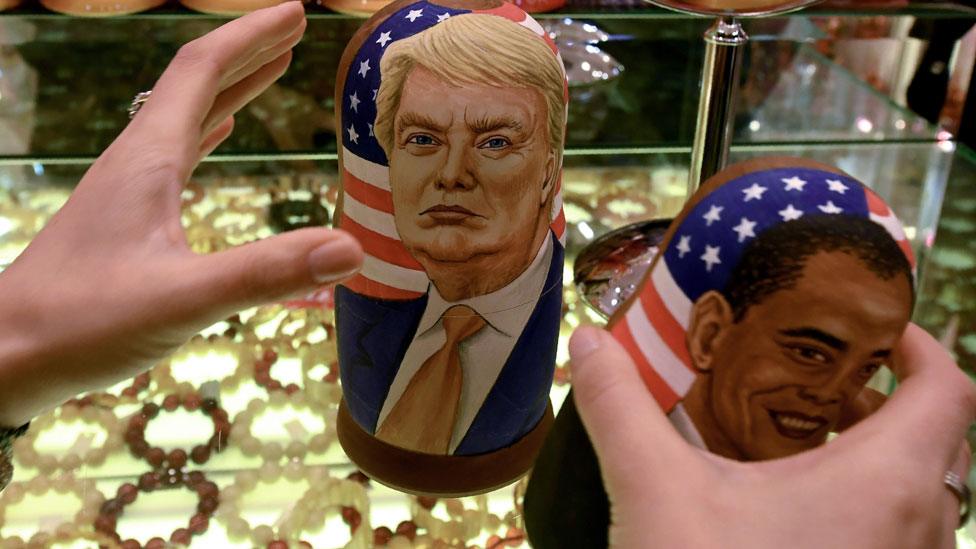
- Published10 September 2024
